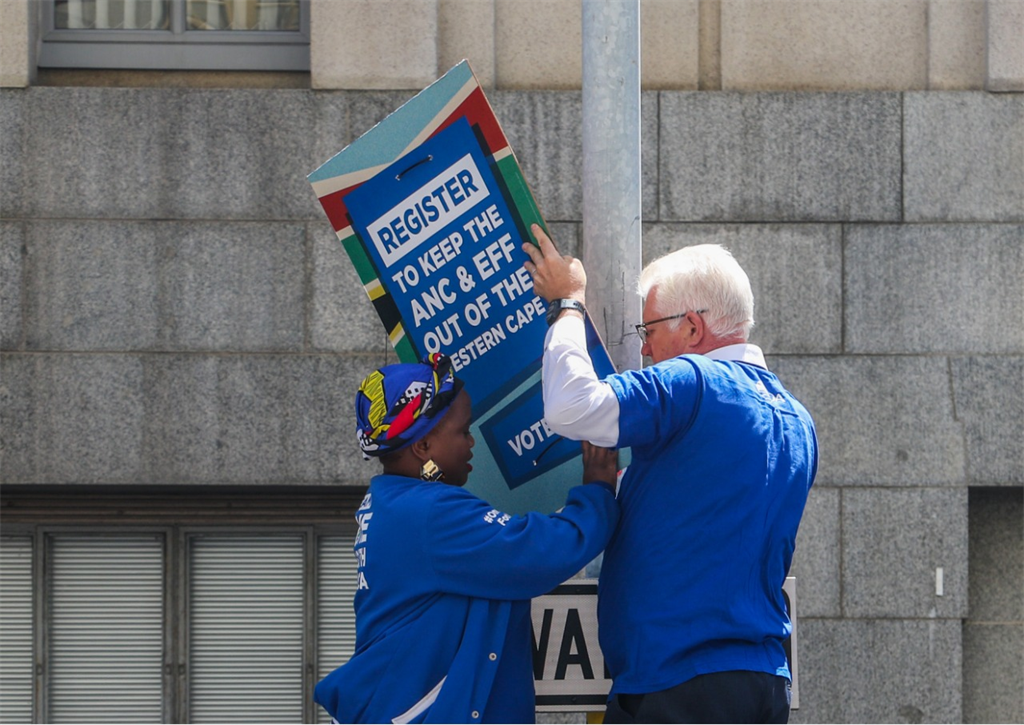
Although the national ballot is rather easy to predict, the outcome in some of the provinces is far less certain and thus also much more interesting, writes Melanie Verwoerd.
As we get closer to the election, opinion polls seem to suggest that there will be little if any surprise in the outcome of the national ballot.
If the election were to be held today, various polls indicate that the ANC will get above 60% of the vote, the DA around 20% and the EFF below 10%. For that to change significantly, something very dramatic would l have to take place in the political arena.
I am frequently asked whether the recent evidence by Angelo Agrizzi around Bosassa will damage the ANC election's outcome. From what is known at this point, I don't believe it will. It is clear that ANC voters are seeing the state capture inquiry as part of a murky and problematic past and evidence of a new era for the ANC led by Cyril Ramaphosa.
READ: Western Cape by-elections: DA has reason to worry, ANC must pull up its socks
However, if it is at any stage proven that many of those close to Ramaphosa or of course Ramaphosa himself are implicated it will be a very different story. He is the ANC's biggest and possibly only draw card. If he goes down, the ANC will have great difficulty in getting more than 60% or even 50% of the vote.
It is therefore almost a given that the opposition parties will try their utmost to tarnish Ramaphosa's image as we head closer to the election.
Although the national ballot is rather easy to predict, the outcome in some of the provinces is far less certain and thus also much more interesting. Polls indicate that the ANC in Gauteng is hovering just below 50%, but with a likelihood to increase their support and thus stay in control.
The outcome in the Western Cape is extremely uncertain at this stage. In the 2014 election the DA got a comfortable 60% of the seats with the ANC just over 38%. However, this has changed dramatically according to polls. With the Helen Zille tweets, the water shortage and Patricia de Lille disaster, it is no longer a foregone conclusion that the DA will get over 50% of the vote.
Privately, DA members are quick to admit concern. Publicly they deny it, yet their election posters tell a different story. "Vote DA to keep an EFF-ANC coalition out of the Western Cape," they read.
A few months ago when I wrote about their "swart gevaar" tactics, there were many indignant denials from DA office bearers. However, it is difficult to interpret these posters in any other way.
The problem for the DA lies in the "coloured" vote. (I apologise for using this contentious term and also for racial classifications. However, research confirms that voting patterns in South Africa are still largely along old apartheid racial lines and thus it is difficult to do any analysis in the absence of racial references.)
Although voters are not racially classified when registering, the breakdown usually corresponds to the population numbers. In 2017 it was estimated that 48% of people living in the Western Cape were coloured, 35% black, 0.7% Indian and 16% white. This means that the largest voting block, by far, is made up of coloured voters. The problem is that the DA has seriously alienated a large section of that community.
Polling figures show that as many as 45% of those polled in the Western Cape were either undecided or won't vote. According to the polls the ANC support is similar as in 2014. However, the DA support is showing a significant drop. It would therefore be safe to assume that many of these "undecideds" were previously DA supporters. Given the demographic it is also fairly obvious that many of them would be coloured voters.
No wonder then that all the parties are trying to woo them. Who would ever have thought that the Freedom Front Plus (FF+) would choose someone like Peter Marais as their premier candidate? Although it is a positive sign that the FF+ is able and willing to break away from their white image, the question needs to be asked whether Marais is the right person to do so with.
Listening to him being interviewed by Stephen Grootes on SAfm recently reminded me of the Marais we all knew during the late 1990s – cantankerous and arrogant beyond belief. In the interview he claimed not to represent anyone except himself and of course would not answer a single question about his past – especially not the sexual harassment charges that were laid against him.
Although it was extremely entertaining to listen to, I'm sure that the FF+ will still come to regret this choice, although Marais might well be able to secure a few extra votes for them in the rural areas especially.
ALSO READ: Max du Preez - Unsure who to vote for? These are your options
Then of course there is Patricia de Lille's Good Party. Time will tell whether it will make a significant impact on the election outcome. It might have perhaps been wiser to focus on the Western Cape and possibly the Northern Cape instead of trying to compete in all nine provinces.
The point is that we could see a significant splintering of the DA support base in the Western Cape. This could result in the party losing their absolute majority. Despite the DA's fearmongering, it is also unlikely that the ANC and EFF combined will be able to secure over 50% of the vote. This would make the Good Party and/or the FF+ kingmakers.
The question would be with whom these parties would align. This is for a future column. What is clear, is that the Western Cape is going to be one of the most hotly contested areas in the country in May with a good measure of political nastiness thrown into the mix.
- Melanie Verwoerd is a former ANC MP and South African Ambassador to Ireland.
Disclaimer: News24 encourages freedom of speech and the expression of diverse views. The views of columnists published on News24 are therefore their own and do not necessarily represent the views of News24.




 Publications
Publications
 Partners
Partners























